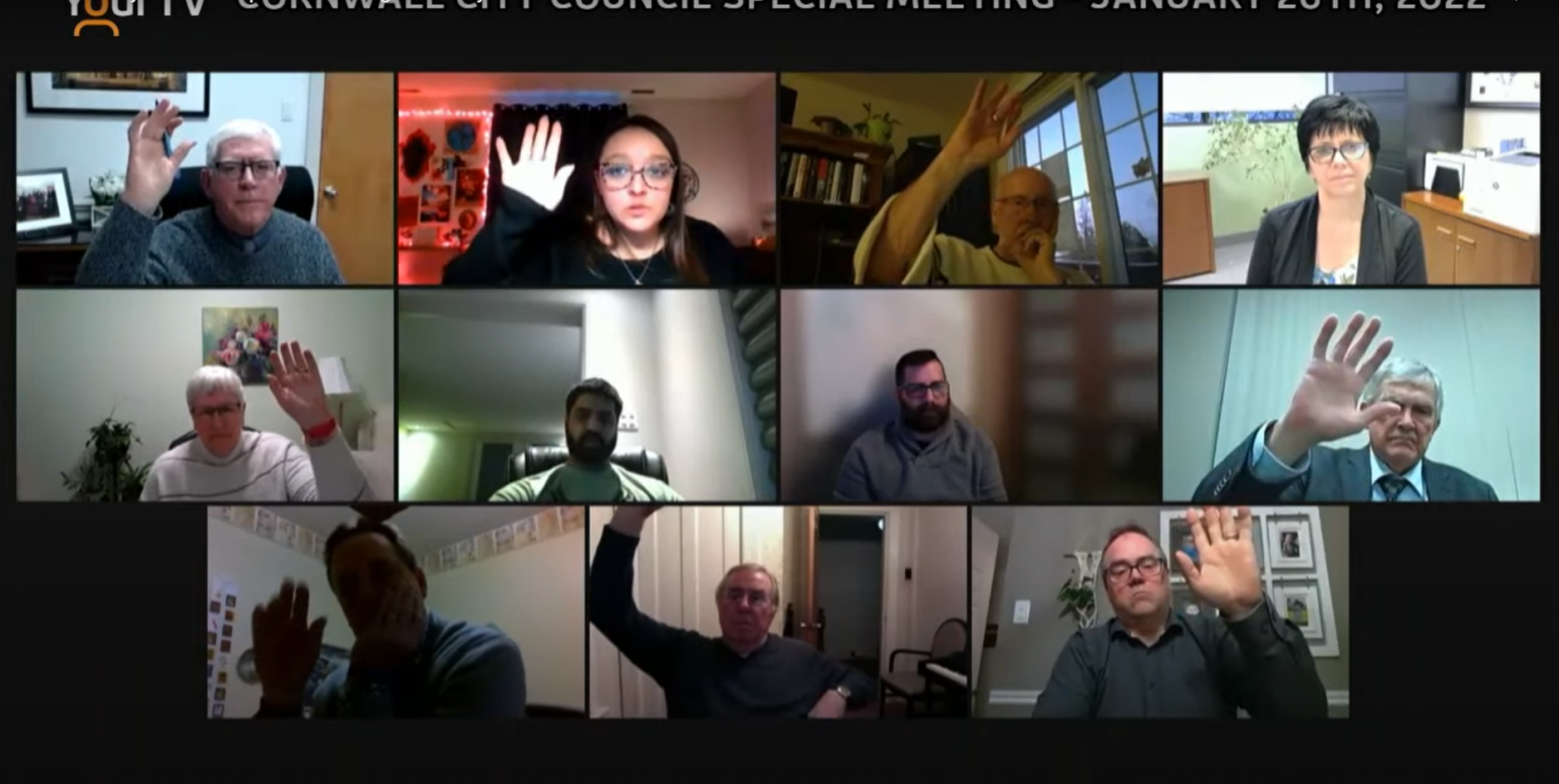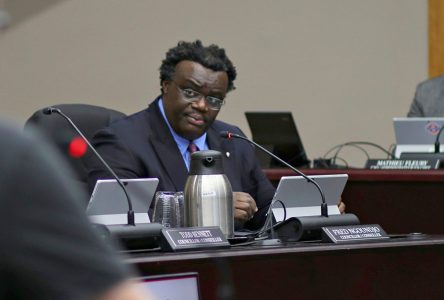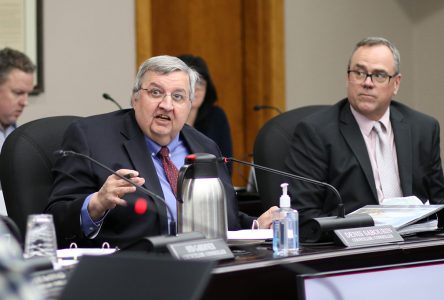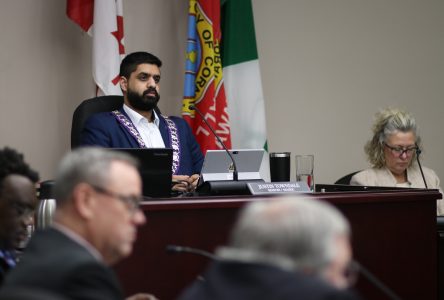CORNWALL, Ontario – Cornwall City Council passed the 2022 municipal budget at a special meeting on Wednesday, Jan. 26 with a tax rate increase of 2.9 per cent or $78.03 for a home valued at 176,907 for a total average residential tax bill of 2,769.06 for 2022.
Council had been facing an increase of 3.59 per cent, but much of that was reduced by budget items that were removed by administration including $2.7 million for redoing the patio and front steps of the Cornwall Civic Complex, $650,000 for a splashpad at Menard Park, $275,000 to redo the Aquatic Centre Splashpad and more.
Over two days, the City’s operating and capital projects budget were presented by administration to Council, at the end of which Councillor Elaine MacDonald immediately moved to see the budget approved without further changes from Council.
“I vote we adopt the budget as presented. It is a fair budget that meets our obligations,” MacDonald said. “We are adding progressive features to life in Cornwall and that we can do it for a 2.9 per cent increase is a tribute to administration.”
Councillor Claude McIntosh pointed out that many municipalities across Ontario were seeing budget increases of three per cent or more and he challenged his colleagues to find places to cut.
“I have no problem with 2.9. I’m not going to do a victory lap or anything. It is an inflationary budget,” he said.
When asked by McIntosh, City Chief Financial Officer Tracey Bailey told Council that to drop the rate increase by 0.5 per cent would require that $400,000 be cut from the budget.
“Do my colleagues have any insight on how to knock $400K without cutting jobs? Without cutting services? I’m all ears,” said McIntosh.
Councillor Justin Towndale sought to take McIntosh up on his challenge, stating that he would like to see money taken from reserves, specifically the Gas Tax Reserve to fund some municipal projects that would otherwise be funded from the tax base.
“I almost want to say challenge accepted,” Towndale said. “I took the time over the past few days to use reserves.”
“2.9 per cent is not the worse number I’ve seen, but I do think there’s opportunities to mitigate that hit,” he added. “Our neighbours are coming in at 3 per cent, but if we have the chance to reduce the burden on the tax base we have an obligation to do that.”
Other members of Council shot down the idea of dipping into reserves to pay for projects in this year’s budget.
“Not a big fan of the 2.9 per cent, not going to lie,” said Councillor Dean Hollingsworth. “I’m never going to support a tax reduction using reserves.”
Hollingsworth compared the idea of dipping into reserve funds to lower the tax rate to paying your groceries with money that you have saved in the bank that you know you will need later down the road.
“I don’t think it is serving our residents over the long term,” he concluded.
Another councillor who voted against approving the budget was Councillor Eric Bergeron who has never voted to approve any budget in his four years on Council.
Bergeron floated the idea of sending administration back to the drawing board and asking them to return with a budget with no tax rate increase.
“If that means some job losses, then that’s what I’m willing to consider,” he said.
Ultimately the budget passed with Mayor Glen Grant and councillors Elaine MacDonald, Carilyne Hébert, Maurice Dupelle, Todd Bennett, Syd Gardiner, Dean Hollingsworth, Denis Carr, and Claude McIntosh voting in favour, and councillors Justin Towndale and Eric Bergeron voting against.
“This City is moving forward because we move the city forward and we do it by making tough decisions. Tough decisions sometimes are not popular, but they’re important decisions,” said Mayor Grant. “Sure there are items here that were taken out and I’m sorry to see them taken out, but they don’t affect service levels, they don’t affect the city as a whole.”




